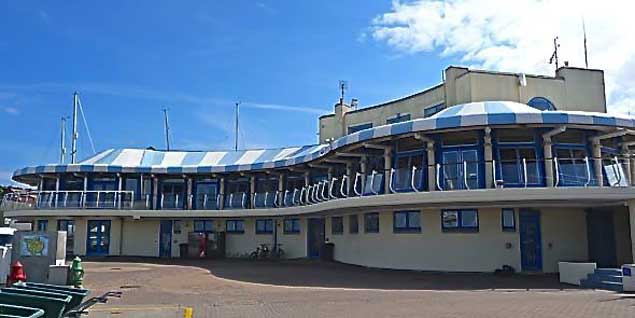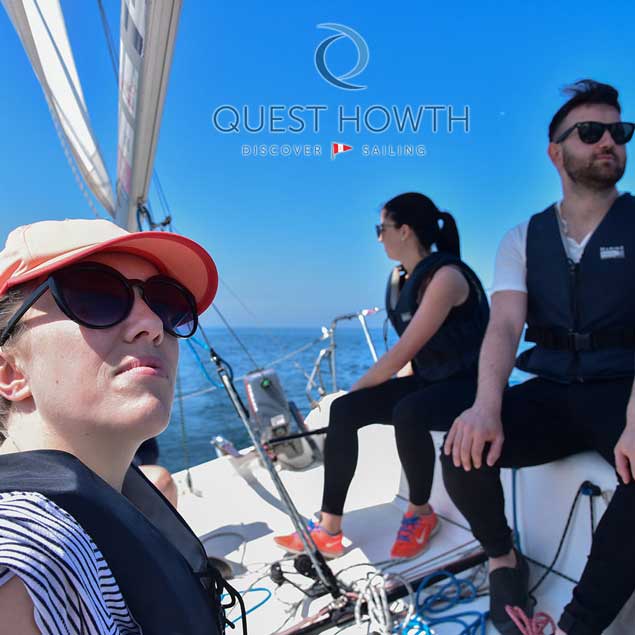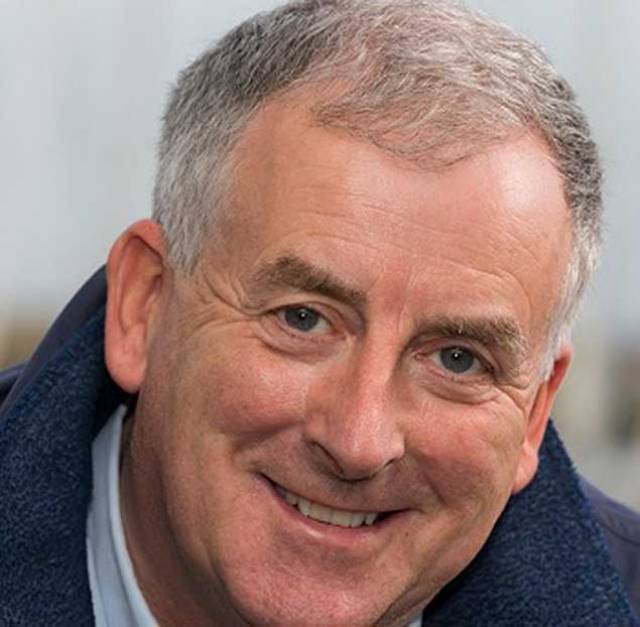In his address to the invited guests at Howth Yacht Club on 23rd November and marking his closing weeks as Commodore of the club, Joe McPeake took the opportunity to share his thoughts on the current position and future possibilities of the sport of sailing in Ireland. The following text is taken from the speech that he gave and presents views that might echo around the Irish sailing scene.
‘Members and special guests are all welcome, as you are all here because each and every one of you has participated in ensuring that this club enjoys a remarkable and successful history, a continuing story which is maintained with your participation in evolving and expanding our core sport of sailing as well as playing a major part in the community.
Your contribution and efforts over the years have ensured that today we enjoy this pace-setting organisation with all its state-of-the-art facilities. Optimising our use of these facilities is always HYC’s main objective, and on this I would particularly like to thank all those sponsors who helped ensure that our sailing events were well funded and organised, helping them to achieve their true potential.
This week has been a spectacular week from an Irish sporting point of view, when we remember last Saturday’s great victory by the Irish rugby team over the world’s Number Ones –– the All Blacks.
Whatever view you take, it certainly showed that we as a nation have the capacity once again to perform way above our weight. It also shows how a sport which - 25 years ago - was a ‘minority exclusive’ sport, has now grown spectacularly through proper planning and strategising, to become one of Ireland’s favourite sports, second only to the great GAA.
 Howth Yacht Club clubhouse
Howth Yacht Club clubhouse
We in the sailing community face this challenge of building growth today. We need to address the challenges from other sports at a time when the entire country has to keep a cool head when the situation in our nearest neighbour is decidedly un-cool. Presently we are in the midst of the Brexit debate which has reminded us very clearly that we are an island nation.
We are surrounded by the sea. But unfortunately, for many decades we have looked inwards, away from the sea. Yet we have incredible natural resources emanating from our coastal waters around Ireland, and not just through fisheries. We have spectacular sailing areas incredible diving sites and magnificent sports fishing. We have wonderful beauty along the coastline. We have seen how successful the Wild Atlantic Way campaign has been for tourism. Yet we have not harnessed the greatest asset that we have, which is the ever-present sea’s potential to maximise marine-related sports.
Look at our European counterparts - especially France, Spain and Portugal - who totally involve their education and municipal authorities in the whole ethos of sea sports and activities. Children are educated almost from the first days in schools about the sea, and they are trained in boating skills among others as a matter of course.
Then we look at Ireland, and realise that sadly, we are way behind in this integration of water-based activities and knowledge into our national life.
And does this have serious consequences? It most certainly does. Coming to the end of my two-year term as Commodore of this great club, I am more than ever clear that the existing structures within clubs throughout the country are not sustainable in the long-term.
The change in our social makeup involving greater participation from people who were not born in Ireland, and the economic costs of the sport, will (in my view) mean that unless the sport dramatically changes its focus and structure, it will decline.
This might sound negative, but unfortunately, it is the reality. The perception of sailing as being exclusive rather than inclusive is widespread within our own community. This is the perception, and inevitably it is taken up within the new Irish community.
"This means that the sport needs to fully integrate ‘watercraft’ into the primary and secondary educational system"
Can this negative perception be tackled? Of course, it can. We need to make the sport more accessible to all in the first instance. This means that the sport needs to fully integrate ‘watercraft’ into the primary and secondary educational system. And not only is it a sporting matter, but it is also a safety issue by virtue of the amount of coastline, rivers and lakes that we have.
We need through our local authorities to develop a program that involves all of the young people in watercraft courses.
In HYC this year, we developed a STEM programme that meant that we had all of the primary schools in the area participate in one-day educational courses. This focused on topics like: the effect of tides, the impact of plastic in the seas, safety and an experience on sailing boats among others.
This is only the beginning of a programme that needs to be developed throughout the country to make young people experience the joy and special satisfaction of being on the water. Watercraft and skills need to be developed at a young age within the educational system.
"Unless we give young people this opportunity and make it widely available, our sport will continue to attract only small numbers"
Unless we give young people this opportunity and make it widely available, our sport will continue to attract only small numbers. Such relatively small numbers will not be enough to support the sport’s viability in the long term. Yet again, the message is we need to make the sport more inclusive.
HYC partners with the ‘Sailing Into Wellness’ program, a superb initiative that uses sailing to help those recovering from addictions. You will see from this video the powerful impact that our sport can provide to help those less fortunate than us.
We are active partners with the Sea Scouts and many other clubs and community groups. We are open to partnering with any group that has a common purpose of enjoying water sports. Our governing body Irish Sailing needs to urgently address this fundamental strategy. Performance sailing and international success is very important, but without a nursery of talent, results will not follow.
The sport needs to get greater numbers and at a younger age involved in sailing. It needs to be driving a strategy to ensure that all schools and all sailing clubs develop an integrated activity and educational platform.
One could look at the Leinster and Munster rugby academies and the development through the schools of their talents. It is at the schools where it starts, and while not everyone will reach the top ranks in competitive sailing, everyone involved will undoubtedly benefit.
Without that quantity which generous and genuine inclusivity brings, success will not flourish.
We are lucky in Howth to have had, and continue to have, many superb sailors. The club has provided a base for young sailors to get a grounding, with our unique facilities being made available to them. We intend to offer this to far more than heretofore.
Nevertheless, to excel they need considerable access to their own special resources allied with their own admirable determination. Yet it is only when they have achieved a certain level – and it’s a very high level too - that any state support kicks in.
To reach that level, our club has to do everything it can to help young sailors. You will have seen highlights that some of our talented members and the commitment that they have made and are making.
To summarise: Sailing is being challenged. If not addressed, it will suffer and decline. But with an integrated strategy, it has the potential to flourish and grow. It needs the governing body to re-focus, and create a link between the schools and the clubs, and it needs to communicate with its members and potential members.
We have made a new start here in Howth. We are developing QUEST, our sailing school open to all.
We are developing further the STEM educational program. We are developing sailing courses through languages. Our Quest website now invites people to participate in sailing in four languages. Chinese, Polish, French and Spanish (as well as English of course!)
 Howth's new Quest sailing school
Howth's new Quest sailing school
We are integrating with other organisations and clubs such as the Sea Scouts to widen and to provide facilities for those showing the slightest interest to readily experience the joys of watercraft.
But locally successful initiatives and ‘piecemeal’ programmes by a few enlightened clubs will not be enough. Our hope is that our aspirations for Howth will be reflected at a national level and all around our coastline. Ultimately, we’re all in this together.
Thank you for coming. Thank you for listening.
Joe McPeake
Commodore Howth Yacht Club






























































